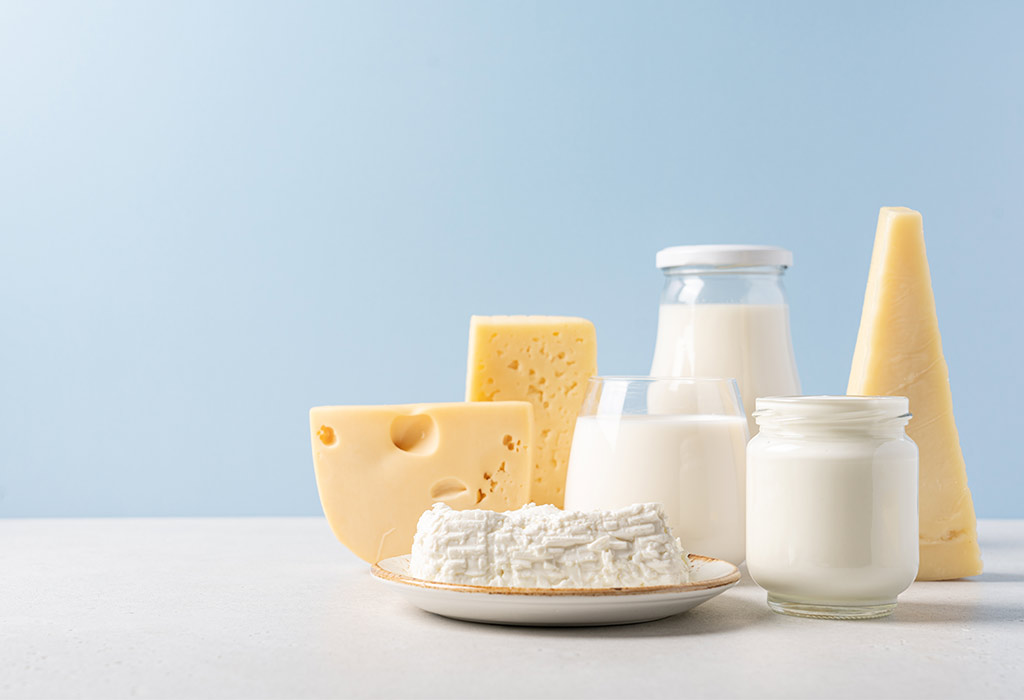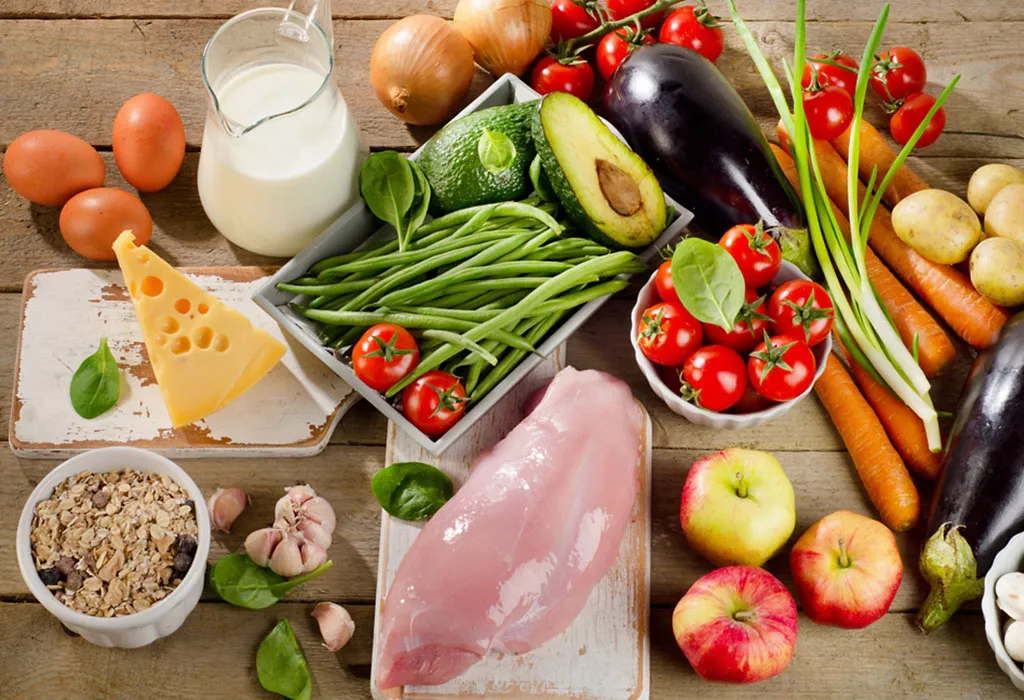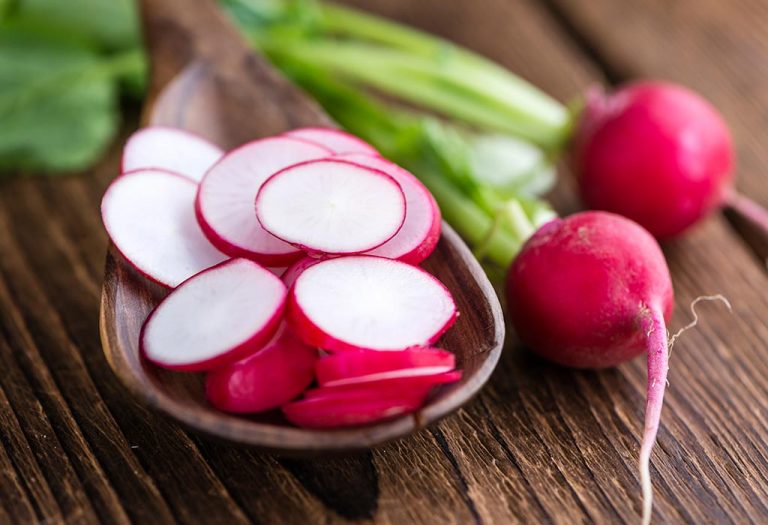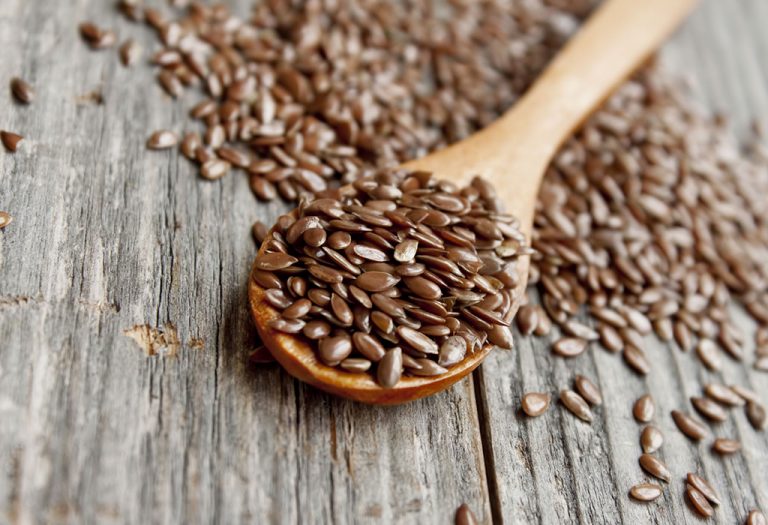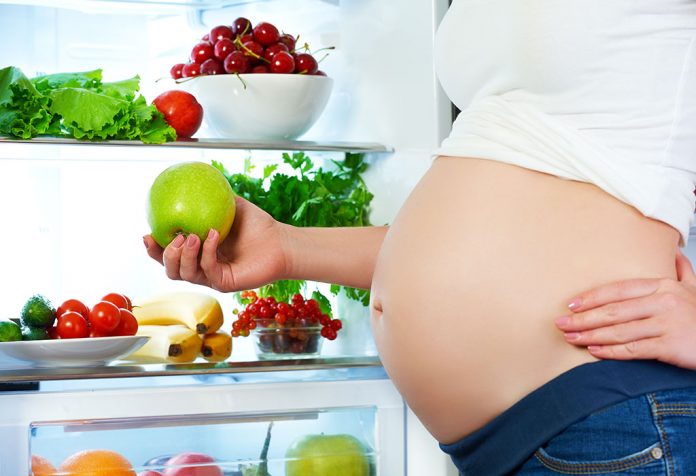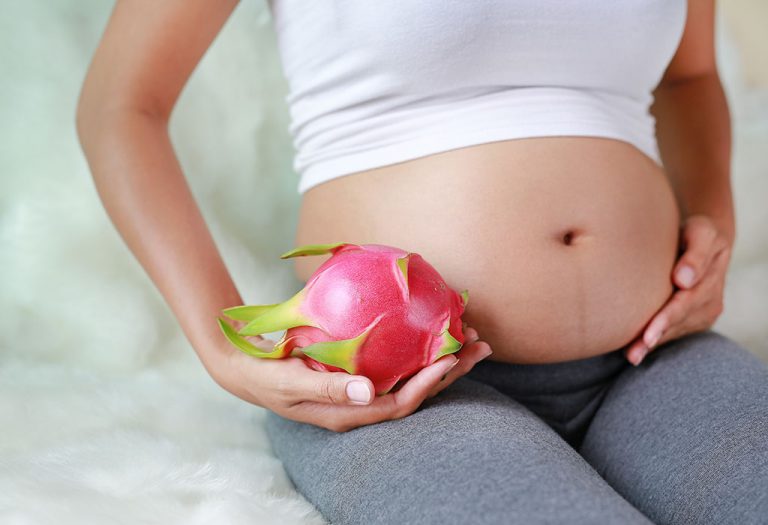Foods to Eat & Avoid During First Trimester of Pregnancy

Being pregnant can give rise to a whole range of emotions – from joy to anxiety to excitement. It can also be physically taxing, making it essential to pay sufficient attention to your health throughout the pregnancy. Proper nutrition during this time is necessary to support the well-being of both the mother and the developing baby. Understanding what food to eat and avoid in the first trimester of pregnancy can help ensure adequate nutrient intake and minimise potential risks. Keep reading to know the best first-trimester food to include in your diet and which ones to steer clear of during this crucial time.
Planning Your First Trimester Diet
The right balance of vitamins, minerals, and nutrients is what you should look at all through your pregnancy, especially in the first trimester. Including foods rich in folates, which are essential for the proper development of your baby’s nervous system, can fill you with hope and optimism. Here is a sample diet for pregnant women in the first trimester of pregnancy (3).
| Food Category | Daily Serving | Type |
| Fruits | 2-3 servings | Fresh, frozen, canned, juices, include at least one citrus fruit |
| Vegetables | 3-5 servings | Cooked vegetables |
| Dairy | 3 cups | Milk, yoghurt, cheese, fortified soy milk |
| Protein | 2-3 cups | Beans, meats, lentils, fish, poultry, nuts, seeds, |
| Whole Grains | 3 servings | Whole-grain bread, cereals, crackers |
Nutritional Needs in Early Pregnancy
Just because you are eating for two doesn’t mean you must instantly double your food intake. This is because you do not need extra calories until your third trimester. However, the body needs more protein, folic acid, Vitamin D, and Vitamin A during this time. You can get these through prenatal vitamins and essential supplements.
1. Prenatal Vitamins
A prenatal vitamin providing 400 mcg of folic acid and 10 mcg of Vitamin D per day should suffice if you’re maintaining a healthy diet. Your doctor, who understands your specific needs, can recommend a suitable one from the many available in the market (1).
2. Essential Supplements
When taking supplements during pregnancy, staying within the daily allowance is essential. You can check the labels of the bottle of supplements to make your calculations. See if calcium, iodine, iron, magnesium, potassium, riboflavin, also known as B2, thiamine, also known as B1, Vitamin A, Vitamin B6, Zinc, Vitamin B-12, Vitamin C, and Vitamin D are present in the supplements you consume.
Foods to Eat in the First Trimester of Pregnancy
Pregnant women need about 300 calories in addition to their normal food intake. Complex carbohydrates like whole grain bread, pasta, vegetables, beans, and legumes must be consumed regularly. A good amount of fluids and fibre must also be a part of your daily diet when pregnant. The following are some good foods for the first trimester that should become part of your diet during this important phase of life.
1. Vegetables
It is essential to have around three to five servings of vegetables in various colours. Spinach is a rich source of folic acid, so you should include it in your 1st trimester diet. Broccoli has a high iron content, which helps form red blood cells in the baby during the first trimester. However, women with hypothyroidism should avoid broccoli. Green peas, tomatoes, red, green, and yellow bell peppers, asparagus, and sweet potatoes are all recommended for the first trimester (5).
2. Fruits
The recommended amount of fruits for the first trimester of pregnancy is at least three servings per day. Citrus fruits are a good source of folic acid, so try to eat grapefruits, oranges, and sweet limes regularly. Avocados, bananas, pears, cantaloupes, cherries, grapes, guavas, apples, watermelons, pomegranates, and mangoes are other fruits to include in your diet.
3. Non-Vegetarian Food
When deciding on the type of non-vegetarian food for a first-trimester diet, you can include warm chicken soup, eggs, and lean meats. Be sure to eat well-cooked poultry and meats to prevent digestive issues and bacterial infections. Fish are rich in omega-3 fatty acids, but you should avoid deep-sea fish like king mackerel, shrimp, shark, and swordfish, which tend to have a high mercury content.
4. Dairy Products
When aiming for the required three portions of dairy per day, you can choose cottage cheese, as it is a good source of protein and calcium, which is essential for bone and muscle development. Yoghurt, curd, low-fat milk, and different varieties of cheese can be consumed during the first trimester (7).
5. Whole Grains
Whole wheat, oats, barley, corn, millet, and rice are whole grains for your first-trimester diet. Lentils in soup or cutlets can be part of your diet during pregnancy. Grains provide energy to your baby and are essential for the growth of the placenta.
6. Protein
See that you get at least two servings of proteins per day. Eggs are a rich source of protein, alongside dairy products like cottage cheese. So are fish, meats, nuts, poultry, milk, and peanut butter. Make sure you are not allergic to dairy or nuts (9).
7. Other Foods
Nausea and morning sickness are likely to last through the first trimester. So, you might also want to keep some stomach-friendly food items handy, such as ginger ale, crackers, pretzels, and flavoured popsicles.
Food to Avoid in the First Trimester
Food cravings are quite normal during pregnancy, but ensuring you do not lose sight of your nutrition goals while fulfilling these cravings is essential. Some foods are a strict no-no during pregnancy, especially the first trimester. They include (2):
- Fish containing mercury, such as swordfish, king mackerel, and shark (4)
- Raw or undercooked shellfish and eggs
- Raw meats and poultry
- Milk that is not pasteurised
- Soft cheeses such as brie, feta, or blue cheese that are unpasteurised
- Raw sprouts
- Fruits and vegetables that are not washed properly
- Papaya
- Pineapple
- Black grapes
- Eggplant
- Cabbage and lettuce
- Excess caffeine (8)
- Too much sugary food, such as desserts and sweetened beverages
What to Eat if You Are Struggling With Morning Sickness and Nausea?
Morning sickness and nausea are common challenges many expectant mothers face during the first trimester of pregnancy. Finding the right foods to alleviate these symptoms can significantly improve your comfort and overall well-being. Here are some foods that can help ease morning sickness and nausea:
1. Ginger
Ginger is well-known for its anti-nausea properties. Consuming ginger tea, ginger ale, or ginger candies can help reduce morning sickness symptoms. You can add fresh ginger to your meals for an extra soothing effect (10).
2. Crackers and Toast
Plain, dry foods like crackers and toast are often easier to keep down when you feel nauseous. They can help absorb stomach acids and provide a quick source of energy.
3. Bananas
Bananas are gentle on the stomach and can help replenish lost electrolytes, especially if nausea has led to vomiting. They are also a good source of potassium, which can help maintain energy levels.
4. Plain Yoghurt
Plain yoghurt is a good source of protein and probiotics, which can help settle your stomach. Avoid varieties with added sugars, as these may exacerbate nausea.
5. Oatmeal
Oatmeal is easy to digest and provides complex carbohydrates that can help stabilise blood sugar levels, potentially reducing feelings of nausea.
Healthy Diet Tips to Follow in Early Pregnancy
A pregnancy diet during the first trimester is crucial for supporting the initial stages of fetal development. Maintaining a healthy diet involves getting the right vitamins, minerals, and nutrients. You can ensure this by:
- Choose healthy food options such as salads, soups, fruits, and steamed veggies whenever you feel hungry between meals or at snack time instead of quick solutions like packaged products.
- Drink lots of water and other fluids to stay hydrated.
- Don’t forget to take your prenatal vitamins and folic acid supplements daily.
- Avoid alcohol and cut down on caffeine intake.
- Stay active and exercise moderately, depending on your health conditions.
- Don’t miss any doctor appointments or scheduled checkups.
Food Substitutions You Can Make During the First Trimester
If your favourite foods have suddenly become a strict no-no during pregnancy, it can be hard to resist sudden cravings, especially when you’re trying to stay true to your diet. However, these food substitutions, with their variety and options, can help you get through those cravings and make you feel more in control of your diet.
1. Fried Items
Fried items can easily be substituted for baked ones. You can get baked or air-fried chips and nachos at a supermarket. Popcorn is also a low-calorie, yummy substitute if you’re craving something crunchy and salty.
2. Ice Cream
You can replace ice cream with frozen yoghurt, which is just as creamy and comes in various flavours. You’ll hardly be able to tell the difference. Bonus points for adding healthy toppings like fruits.
3. Chocolate
This isn’t much of a substitution, but if you’re craving some chocolate, opt for plain dark chocolate rather than milk or white chocolate, which has loads of sugar.
FAQs
1. What are some healthy snack options for the first trimester?
Healthy snack options include nuts and seeds (like almonds and sunflower seeds), yoghurt with fruit, whole grain crackers with cheese, and hummus with raw vegetables. These snacks provide a balance of protein, fibre, and essential nutrients to keep energy levels stable and support pregnancy health.
2. Should I be concerned about weight gain during the first trimester?
Weight gain during the first trimester is typically minimal, often around 1-4 pounds. Focus on eating nutrient-dense foods and listening to your hunger cues. Consult your healthcare provider for personalised guidance if you have weight gain concerns.
3. How can I get enough folate/folic acid in my diet during the first trimester?
Folate is crucial for preventing neural tube defects in the developing baby. Good sources include leafy greens (like spinach and kale), fortified cereals, beans, lentils, and citrus fruits. Taking a prenatal vitamin containing folic acid is also recommended (6).
The first trimester is crucial for many reasons. This is the period when the risk of miscarriage and birth defects is the highest. This is also the time when your baby’s vital organs start developing and need the right type of nutrition. So, focusing on what you eat and staying active during pregnancy, especially during the first three months, is not just important; it’s crucial. It ensures your baby is as healthy as possible and underscores the need for careful dietary choices.
References/Resources:
1. Get Enough Folic Acid; Office of Disease Prevention and Health Promotion; https://health.gov/myhealthfinder/topics/everyday-healthy-living/nutrition/get-enough-folic-acid
2. What to eat and what not to eat when pregnant; OSF HealthCare; https://www.osfhealthcare.org/blog/what-to-eat-and-what-not-to-eat-when-pregnant/
3. Have a healthy diet in pregnancy; NHS; https://www.nhs.uk/pregnancy/keeping-well/have-a-healthy-diet/
4. What to eat when pregnant; UNICEF Parenting; https://www.unicef.org/parenting/what-to-eat-when-pregnant
5. An Essential Guide on What to Eat During Pregnancy; Family Health Centers of San Diego; https://www.fhcsd.org/prenatal-care/what-to-eat-during-pregnancy/
6. Nutrition During Pregnancy; Johns Hopkins Medicine; https://www.hopkinsmedicine.org/health/wellness-and-prevention/nutrition-during-pregnancy
7. What to eat before, during and after pregnancy; UNICEF Parenting; https://www.unicef.org/rosa/stories/what-eat-during-and-after-pregnancy
8. FOOD SAFETY DURING PREGNANCY; The Women’s; https://thewomens.r.worldssl.net/images/uploads/fact-sheets/Food-safety-during-pregnancy_2021.pdf
9. HEALTHY EATING WHEN YOU’RE PREGNANT; The Women’s; https://thewomens.r.worldssl.net/images/uploads/fact-sheets/Healthy-eating-pregnant_2021.pdf
10. Lete. I, Allué. J; The Effectiveness of Ginger in the Prevention of Nausea and Vomiting during Pregnancy and Chemotherapy; PubMed Central; https://www.ncbi.nlm.nih.gov/pmc/articles/PMC4818021/#
Also Read:
Second Trimester Diet
Third Trimester Diet
Foods to Avoid during Pregnancy
Was This Article Helpful?
Parenting is a huge responsibility, for you as a caregiver, but also for us as a parenting content platform. We understand that and take our responsibility of creating credible content seriously. FirstCry Parenting articles are written and published only after extensive research using factually sound references to deliver quality content that is accurate, validated by experts, and completely reliable. To understand how we go about creating content that is credible, read our editorial policy here.











